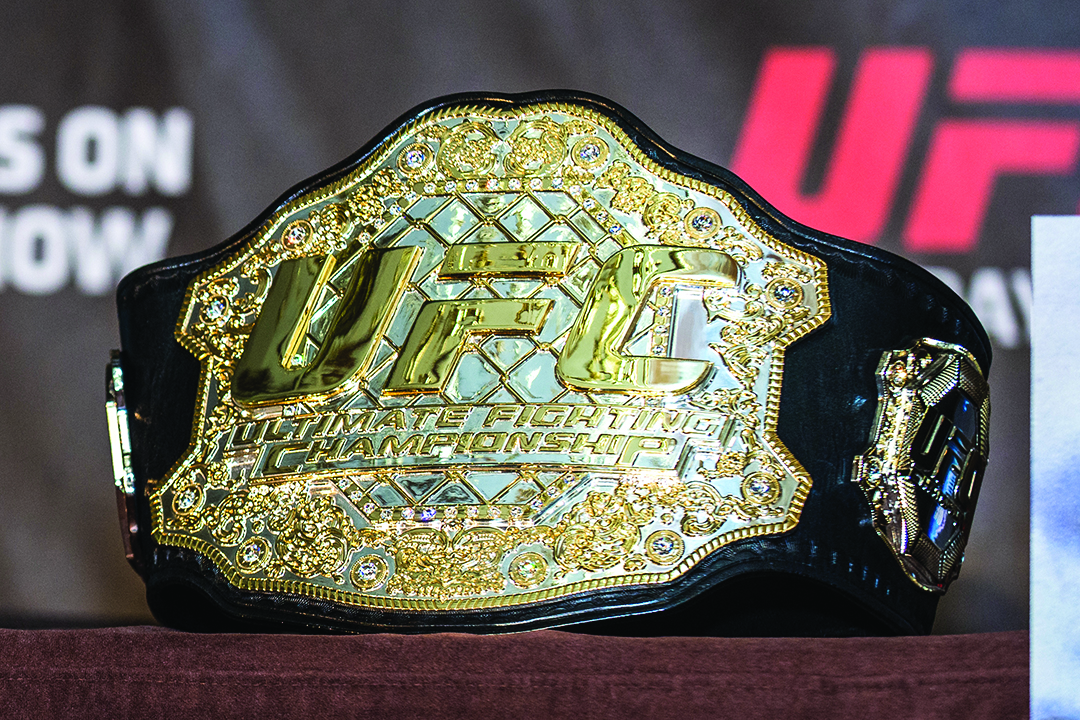From Bizaardvark to boxing, the social media sensation Jake Paul has always been able to captivate fans. His latest stunt was performed on New Year’s day, when Paul challenged Dana White, the president of the Ultimate Fighting Championship (UFC), via Twitter. After wishing the billionaire a happy new year, Paul threw the first punch by promising that he would “immediately” retire from boxing and fight Jorge Masvidal if White agreed to the following three stipulations: increase the minimum fighter pay to 50,000 USD, guarantee UFC fighters 50 per cent of UFC annual revenues, and provide long-term health care to all fighters.
The tweet started a social media spar between the two celebrities. White countered Paul’s demands with a right hook by saying that Paul was “too stupid” to write the ultimatum. On top of that, he said the reason Paul called him out in the first place was because he couldn’t garner impressive enough pay-per-view numbers.
However, White left himself exposed to a subsequent barrage of hits from Paul. A day later, an irritated Paul finally threw the knockout blow. On January 2, “The Problem Child” Jake Paul posted a video on his Instagram story stating that White was “ruining [Paul’s] vacation” because White did not address his proposal.
That characterizes the majority of the back and forth between the two, minus all of the corny disses here and there. While Paul’s popularity and petty shots make it seem like he was the winner of the exchange, the ‘referees’ are still not convinced. A thorough look into the politics of the UFC is necessary to make the final call.
To start, the UFC per-fight fighter wage might not be the most captivating wage problem in sports — the WNBA, unfortunately, takes that spot — but it is a problem that has been discussed within the niche mixed martial arts world in the last decade.
On top of that, the current minimum payment is about $12,000 USD per fight. The best fighters in the sport make more than three million USD in fights, but this leaves the fighters who aren’t as skilled, or as popular, fighting for the monetary scraps. The question is, why don’t fighters speak up about this, and why did a person like Jake Paul have to be the first one to bring this issue to light in ways that haven’t been done before?
The answer is simple: the supply of fighters coming into the UFC is so much higher than the demand for them, ultimately driving down the pay of each fighter. In an interview with Stephen Daniels of the UFC news site Bloody Elbow, former welterweight title challenger Dan Hardy said that the fighters in the UFC “don’t have a lot of options in terms of bargaining power. There are 100 guys that would step in and do my job for free.” The initiative to pay players more has to come from the league, not from the players advocating for themselves, since someone else can easily take their place.
On top of this, the profit and loss sheet for the UFC is a lot more complicated than Paul lets on. The UFC sees about 500,000,000 USD in annual expenses and, more importantly, 23 per cent of these expenses — their largest percentage for a single expense — are categorized under fighter compensation. So while what Paul is doing may seem honourable, his thought process is superficial, at best. Could the UFC possibly give more to fighters? Sure, but already having a large chunk of their expenses go toward fighter compensation is a decent start.
The last subject on Paul’s list was the health care of the fighters. This is probably the hardest-hitting blow to White’s business machine. While long-term health care — including after fighters retire — might seem like a lofty goal for an organization, in a league where the risk of long-term brain damage is so high, it’s an admirable goal nonetheless. On top of that, other high-risk leagues like the NFL do provide long-term insurance.
Despite this, White thinks that long-term health insurance is a “pretty crazy” idea, refusing to give it any thought. Fortunately for him, fighters in the UFC are independent contractors and not employees like most other sports leagues. Therefore, the UFC is not obligated to provide insurance, no matter what health issues their fighters experience after they retire.
Ultimately, Paul did what he does best: draw attention. But at the end of the day, increasing fighter pay so significantly, expanding wages based on UFC revenue, and implementing long-term insurance by March 31, 2022 would wreak havoc upon the league. The UFC isn’t perfect, nor is any other sports organization; but while the living situations and payment of the fighters could ultimately be better, it’s going to take a lot more than a shoutout from Paul for it to happen. Until then, White will be sitting in his corner, waiting for the final bell to ring.


